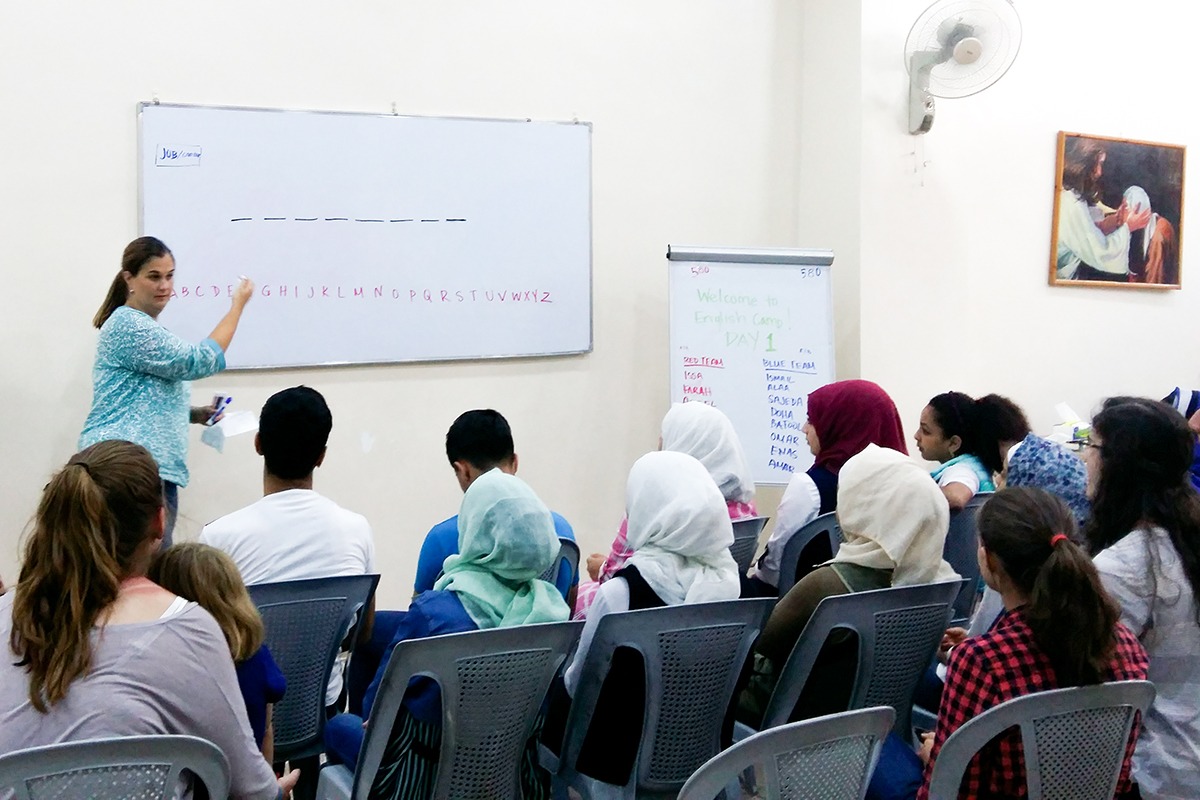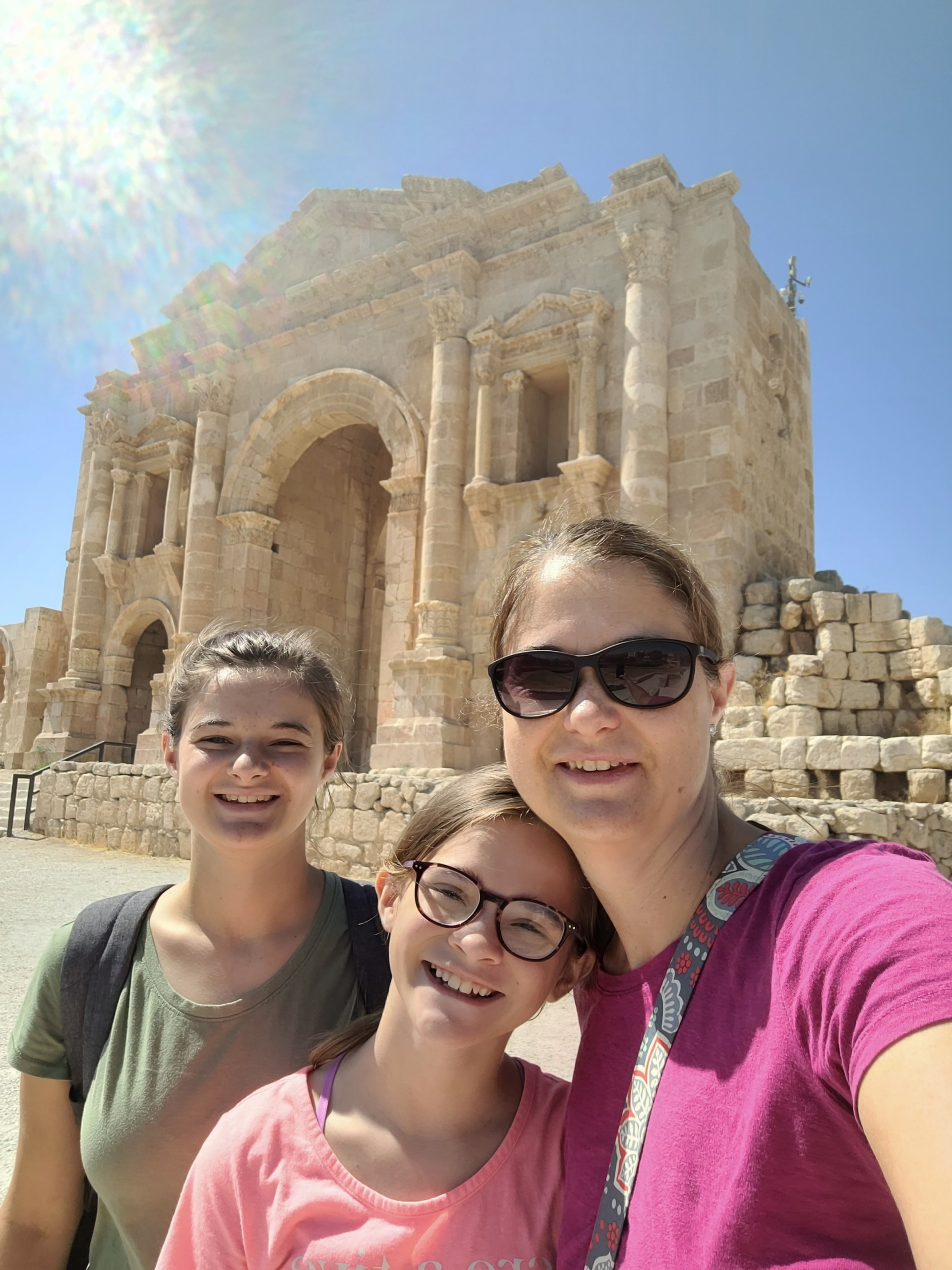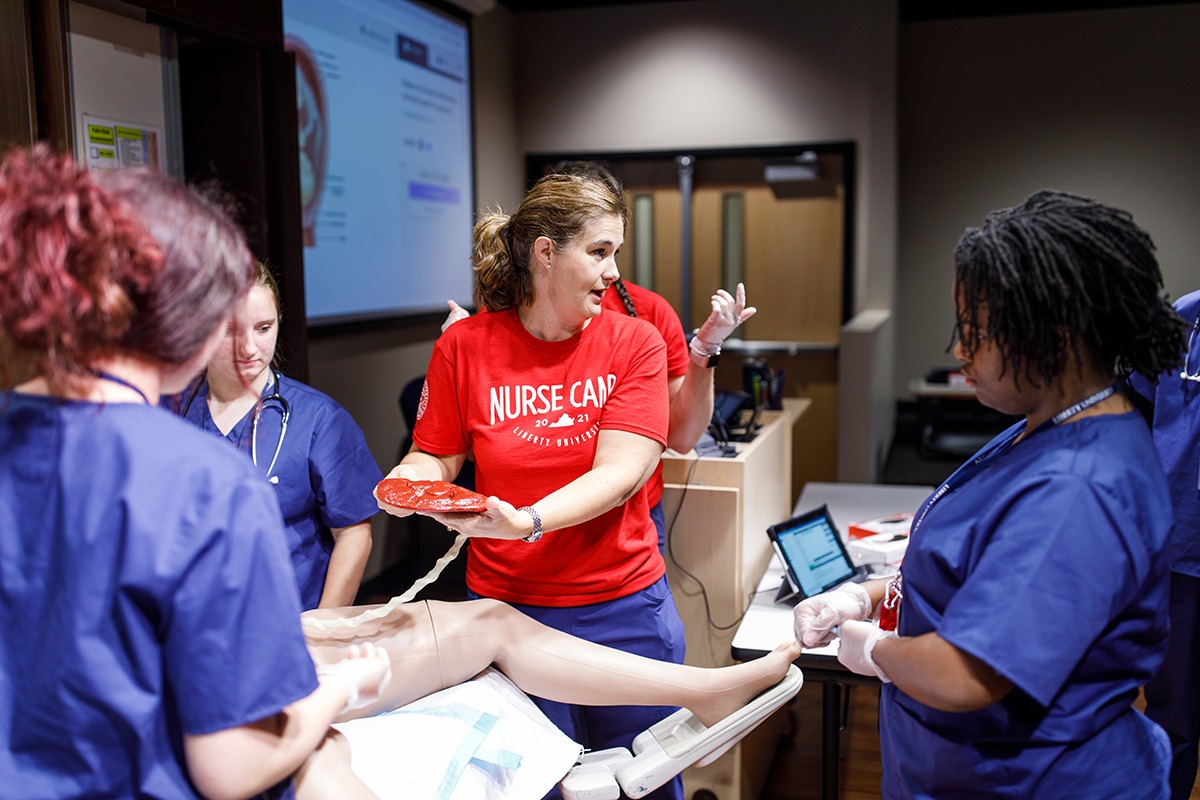Search News Archives
Filter News Articles
Additional Navigation
Liberty nursing lab coordinator spends much of her career aiding Syrian refugees in the Middle East
December 1, 2022 : By Ryan Klinker - Office of Communications & Public Engagement
 After almost a decade of serving women and children in the Middle East in the midst of the Syrian refugee crisis, Angela Holloman is using her experience to train future nurses as a simulation coordinator with Liberty University’s School of Nursing.
After almost a decade of serving women and children in the Middle East in the midst of the Syrian refugee crisis, Angela Holloman is using her experience to train future nurses as a simulation coordinator with Liberty University’s School of Nursing.
Holloman and her husband visited a friend in the Middle East in 2005 and soon felt God calling them to serve the local people there. As the Syrian Civil War began to take its toll, the couple would answer that call and spend nine years (2010-2019) in the Middle East with an established organization supporting refugees by distributing supplies, providing care, and creating multiple other opportunities for service through partnerships with local churches.
“We always partnered with local churches because they had the best contacts with people and local outreach so that if we were not able to stay, that local church could continue the outreach we were facilitating,” Holloman said. “We knew that God had led us there, and then when Arab Spring and the refugee crisis started, we were ready to help and intervene.”
Much of her work focused on the female refugees and children as she organized social activities like craft and English classes for the women and an unofficial K-6 school.
“These people had lost everything, including their social support, so it was mostly for social connections and an outlet for them,” Holloman said. “So many of these kids were out of school because, at the time, they weren’t able to go to public school at all. They were losing one to three years of their education because many of them had been displaced in Syria prior to (leaving). We wanted to offer something that could help those kids get out of the house, be able to be in school, be with their peers, and not lose what they’d already learned.”
These pastimes also proved to be helpful in lessening the risk of domestic violence.
“We were seeing families where the parents weren’t able to work, they were all enclosed in very small spaces all day long, so getting the women and children out of the house was a strategy to help prevent the domestic violence that was so prevalent,” Holloman said.

“It’s definitely given me a different cultural perspective,” she added in looking back at those nine years. “Having lived overseas, I don’t think anyone can come back from that and not be changed in a significant way. It gave me more of an awareness of the fact that we never know what others are struggling with.”
Holloman also offered some informal mental health care to women, who she said often battled tremendous amounts of trauma and depression.
“There are so many people with extreme trauma, which (expresses) itself through anxiety and depression and a breakdown of functioning,” she said. “Many of them are without husbands either because they were separated because of the war or the husband was killed, and they’re raising children on their own in a foreign environment. There’s very little access to mental health care there.”
Holloman returned to the U.S. in 2019 and started her current role at the simulation center. (She previously taught at Liberty as an adjunct obstetrical nursing instructor for a junior-level course and did clinicals with students at Centra Health from 2000-2005.)
As a simulation center coordinator, Holloman leads workshops that complement a lot of the junior- and senior-level courses at LUSON. She said her overseas experience has made her keenly aware of the disparity between the technology and practices available to different communities around the world.

“(My experience) helps me give the students the lesson that they have all of these gadgets and this technology at their disposal (in the U.S.), but they can’t lose that ability to use their senses and basic assessment skills in case they are somewhere that doesn’t have all of those (resources),” she said. “Outside of this country, it’s a very different type of nursing, so I remind them that we need to use the technology the best we can but also not forget the basic skills.”
Holloman also never forgot the need she saw overseas for nurses trained in mental health care and became even more passionate about pursuing formal training in the field. She researched trauma therapy programs and, after seeing that most of them required a master’s degree, which she did not have, she came across Liberty’s post-BSN Psychiatric Mental Health Nurse Practitioner (PMHNP) program, offered online, and enrolled in January 2021.
“It’s been an incredible opportunity to get an advanced degree that Liberty had built off of the strong foundation of its other degrees,” she said.
Holloman is halfway through the four-year program and hopes to return to the Middle East or other areas in high demand for mental health and share her new knowledge with healthcare workers there.
“What I really want to do is make short-term trips to provide trauma therapy and intervention, but also train the primary care providers who are treating people’s medical needs,” she said. “There’s not as much of a stigma to medical health care as there is to mental health care, so if primary providers have those tools, they’ll really be able to help people.”


